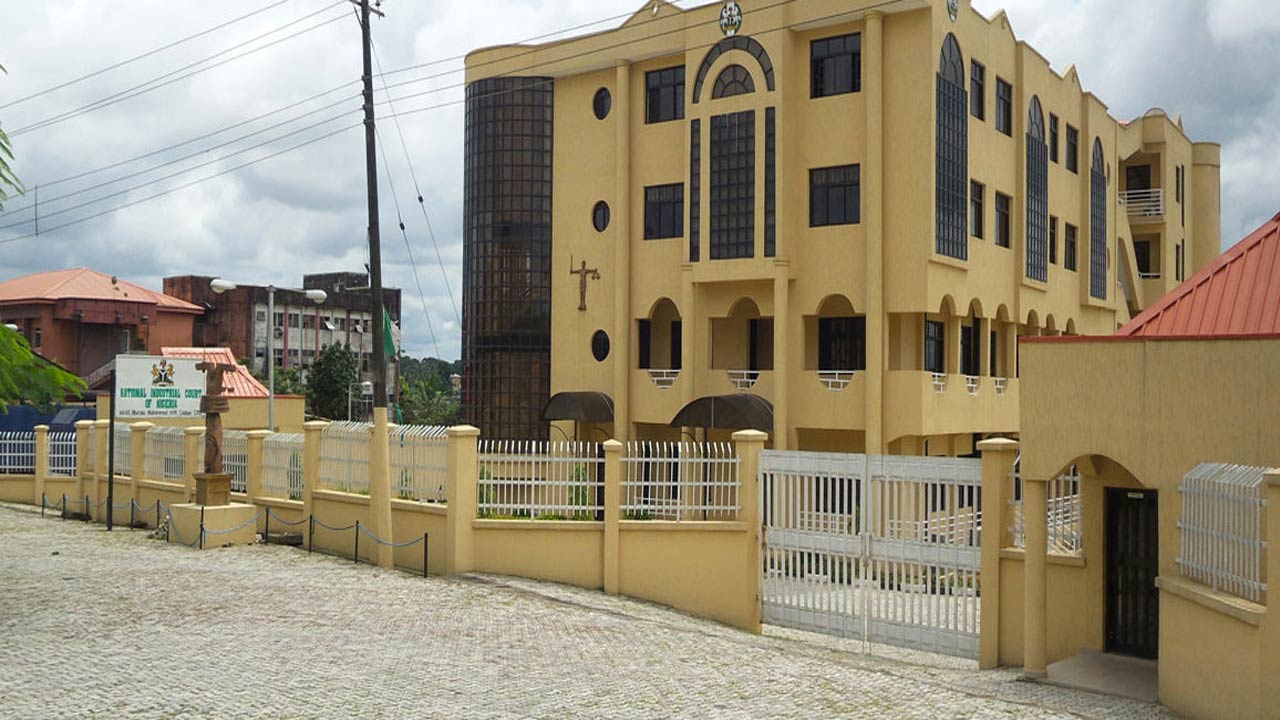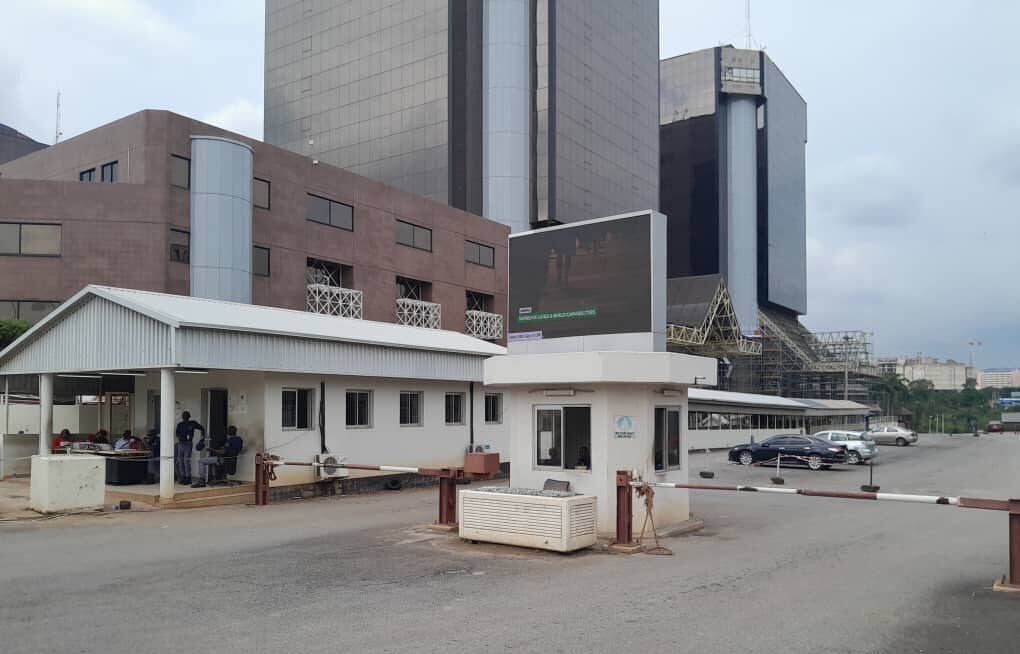In the Supreme Court of Nigeria
Holden at Abuja
On Friday, the 21st day of February, 2025
Before Their Lordships
Helen Moronkeji Ogunwumiju
Emmanuel Akomaye Agim
Haruna Simon Tsammani
Obande Festus Ogbuinya
Mohammed Baba Idris
Justices, Supreme Court
SC/CR/408/2020
Between
FIDELIS UGWU APPELLANT
And
THE STATE RESPONDENT
(Lead Judgement delivered by Honourable Haruna Simon Tsammani, JSC)
Facts
The Appellant was arraigned before the High Court of Niger State on a one-count charge of armed robbery, contrary to and punishable under Section 1(2)(a) and (b) of the Robbery and Firearms (Special Provisions) Act 2010. The case of the Respondent (Prosecution) was that that on 15th January, 2015, the Appellant and two others, while armed with a gun and knife, attacked one Arch. Umar Muhammed Bawa (PW1) and his female friend, and dispossessed him of his Toyota Camry vehicle and other valuables. It was further alleged that the Appellant and his accomplices were apprehended by the Police, while attempting to sell the stolen vehicle. After the conclusion of trial, the Appellant and his accomplices were convicted as charged and sentenced accordingly. Dissatisfied, the Appellant appealed to the Court of Appeal which dismissed the appeal and affirmed his conviction. Consequently, the Appellant appealed to the Supreme Court.
Issue for Determination
The Supreme Court adopted the 2nd issue distilled by the Appellant, for the determination of the appeal as follows:
Whether from the facts and circumstances of this case, the guilt of the Appellant as affirmed by the Court of Appeal was proved beyond reasonable doubt as required in criminal cases.
Arguments
Counsel for the Appellant argued that the Court of Appeal was wrong when after agreeing with the Appellant that the trial court erred by holding that the Appellant’s extra judicial statement (“Exhibit C”) was admitted without objection, it still proceeded to hold that the error could not lead to the reversal of the trial court’s judgement. The Appellant’s Counsel contended that the trial court’s statement that Exhibit C was admitted without objection despite the same having been objected to and the trial court taking arguments on the objection, suggested that the trial Judge had already formed an opinion on the culpability of the Appellant before the Appellant could enter his defence. Counsel relied on NYAME v FRN (NO. 1) (2010) 5 NCC 250 to submit that a trial court must refrain from delving into the merits of a case at an interlocutory stage. Counsel maintained that the concurrent findings on Exhibit C were perverse as they were not borne out of the evidence on record, and they occasioned a miscarriage of justice on the Appellant.
Counsel argued further that, the prosecution failed to prove the ingredients of armed robbery against the Appellant beyond reasonable doubt. Counsel contended that there were material contradictions in the prosecution’s case, one of which was the testimony of PW1 that it was the Appellant who wielded the gun during the robbery whereas PW2 testified that it was the Appellant’s co-accused – Jemilu Shehu that did. Counsel also contended that there were contradictions in the testimonies of the prosecution’s witnesses, regarding the Police station where the robbery incident was first reported before it was transferred to the State C.I.D., Minna. The Appellant’s Counsel argued that while PW2 testified that the robbery was first reported at Bosso Divisional Police Station, PW3 on the other hand testified that it was referred from GRA Police Station to the State C.I.D., hence, there was the possibility that PW2 and PW3 were testifying about different incidents altogether.
In response, Counsel for the Respondent argued that the burden of proof of the prosecution to prove its case beyond reasonable doubt in every criminal trial does not mean proof beyond all doubt, but proof strong enough to leave no reasonable doubt in the mind of a prudent person. Counsel argued that the prosecution proved the essential ingredients of the offence of armed robbery against the Appellant beyond reasonable doubt through eye witness testimony, confessional statement and circumstantial evidence which are the legally recognised methods by which the prosecution can prove its case. The Respondent’s Counsel submitted that the fact of the robbery was established through the testimony of PW2, who recounted how three armed men robbed him and the fact that the robbers were armed was confirmed by PW2’s testimony and further corroborated by the Appellant’s confessional statement (Exhibit C). Counsel contended that the evidence at the trial that the Appellant was apprehended in Kaduna a day after the robbery while attempting to sell the stolen vehicle, established the Appellant’s complicity.
On the Appellant’s complaint on the reasoning of the trial court on the admissibility of Exhibit C, Counsel for the Respondent submitted that a voluntary statement to the Police is admissible in evidence. Counsel argued that the objection raised before the trial court was on technical grounds relating to signature placement and not voluntariness; thus, the trial court rightly admitted the statement. Counsel further argued that the trial court’s remark that Exhibit C was admitted without objection was a mere slip which did not affect the voluntariness, admissibility, or probative value of the statement. Relying on OKONJO v ODJE (1985) 10 S.C. 267, Counsel submitted that the Court of Appeal was correct to hold that the error in the statement of the trial court did not occasion any miscarriage of justice on the Appellant.
Counsel for the Respondent also submitted that the Appellant’s possession of the stolen vehicle shortly after the robbery, without any plausible explanation as to how it came into his possession, was strong circumstantial evidence of his involvement in the robbery. Counsel argued that the fact the Appellant was arrested in possession of the stolen car constituted independent and corroborative evidence of his guilt. On the alleged contradictions in the testimony of the prosecution’s witnesses, counsel for the Respondent argued that minor inconsistencies do not diminish the overall weight of credible evidence where the essential elements of the offence have been established as in the case. Counsel submitted that the discrepancies highlighted by the Appellant were immaterial and did not go to the root of the case.
Court’s Judgement and Rationale
The Supreme Court held that, by virtue of Section 135 of the Evidence Act, 2011, the prosecution bears the burden of proving its case beyond reasonable doubt; however, proof beyond reasonable doubt does not mean proof beyond all shadow of doubt, but only means proof by compelling and conclusive evidence devoid of capricious or whimsical and speculative doubt, or doubts based solely on fanciful reasons or considerations. The Court restated the settled principle that the prosecution may discharge this burden through any or a combination of (i) direct evidence of eyewitnesses, (ii) the positive and unequivocal confessional statement of the accused person; and (iii) circumstantial evidence.
On the Appellant’s contention that the lower court erred when it affirmed the judgement of the trial court that Exhibit C was admitted without objection, the Apex Court held that there was no doubt that when Exhibit C was tendered at the trial, Counsel for the Appellant raised an objection to its admissibility, which was duly argued before the trial court admitted it in evidence. The Supreme Court held that the lower court also agreed that Exhibit C was rightly admitted as evidence, and there being no appeal against this finding, the resultant effect is that Exhibit C was properly and rightly admitted in evidence and the parties had no issue with the finding, hence, the decision of the Court of Appeal that Exhibit C was rightly admitted in evidence by the trial court remains binding and conclusive.
On the pronouncement of the trial court that Exhibit C was tendered without objection, the Supreme Court agreed with the finding of the Court of Appeal that the error did not affect the weight of evidence attached to the said exhibit and no miscarriage of justice was occasioned by the error. The Apex Court, relying on SOLOLA & ANOR v STATE (2005) LPELR-3101 (SC), reiterated the settled position of the law that it is not every slip or mistake in a judgement that can lead to the judgement being set aside and a mistake or misstatement that can lead to a reversal of a judgement or decision must be substantial in that it occasioned a miscarriage of justice. The Apex Court held that the trial court’s pronouncement that the Exhibit C was admitted without objection was a misstatement of what transpired when Exhibit C was tendered, which was not substantial enough and did not occasion any miscarriage of justice to warrant the setting aside of the trial court’s judgement.
The Apex Court further held that the Appellant who complained against the mistake of the trial court has the onus to demonstrate that the Court of Appeal’s affirmation of the trial court’s judgement occasioned a miscarriage of justice on him; however, he failed to discharge the onus. The Supreme Court also held that there was no doubt that the findings of fact made by the Court of Appeal were in accord with the oral and documentary evidence adduced before the trial court, and the Appellant did not appeal against the said findings.
On the allegations of the Appellant that there were contradictions in the testimonies of the prosecution witnesses, the Supreme Court held that inasmuch as the law recognises that contradictions in the evidence of a party are usually fatal to the party’s case; for a contradiction to affect the evidential value of a case, it must be material and go to the root of the charge against the accused. The Apex Court held that such contradiction must touch on an important element or ingredient of the offence charged, thus, contradictions that are peripheral and irrelevant to the proof of the offence charged are not material, and where such is shown to exist in the evidence given by the witnesses, it cannot affect the evidential value of the totality of the evidence adduced at the trial.
The Supreme Court held that the contradictions complained of about the specific Police station where the case was first reported, is not a requirement for the proof of the essential elements of armed robbery against the Appellant and on the issue of who amongst the Appellant and his accomplices held the gun, it was not in doubt based on the uncontroverted evidence adduced at trial, that the robbers were armed with a gun in the process of the robbery. The Apex Court held further that whether or not the Appellant held the gun or one of his co-accused is a non sequitur to prove the Appellant’s guilt; what is paramount is that the evidence adduced comprehensively linked the Appellant to the robbery committed, and that one of the robbers was armed.
The Supreme Court found that once it is established that the Appellant acted in concert with others in the commission of the offence for which he was charged, the law does not require that the court should look for the person who held the weapon used in the commission of the offence. The Apex Court held that, in other words, the law does not cast a burden on the prosecution to prove which of the accused persons wielded the weapon of robbery; it is enough if the prosecution is able to prove that one of the robbers was armed with an offensive weapon such as in this case, a gun, and that the Appellant was one of the robbers.
Appeal Dismissed.
Representation
Philip. K. Emmanuel with D. M. Ottanwa for the Appellant.
Usman Sanni (on the fiat of the Solicitor General of Niger State) for the Respondent.
Reported by Optimum Publishers Limited, Publishers of the Nigerian Monthly Law Reports (NMLR)(An affiliate of Babalakin & Co.)


